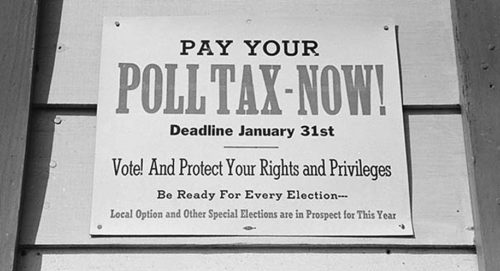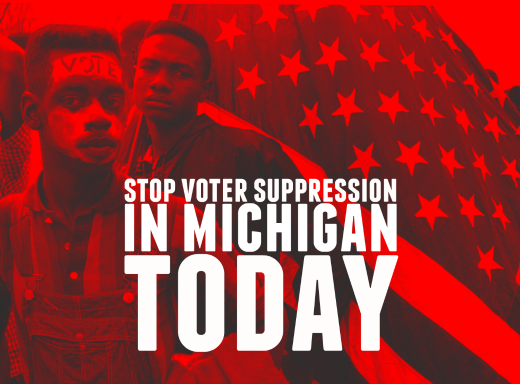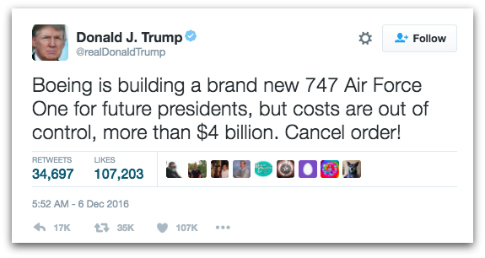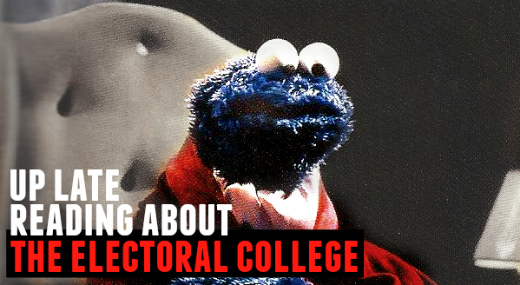
Unless something truly remarkable happens, Donald Trump will be sworn in as the 45th President of the United States on January 20, 2017. This, given the very real threat he poses to our nation, is incredibly distressing to many of us. And, with that in mind, it’s probably not surprising that quite a few very bright people have been searching for ways to keep him from taking office. Of the many ideas I’ve heard thus far, the most compelling scenarios involve the Electoral College, the group of 538 men and women whose job it is to actually elect the President of the United States, and the possibility that something unprecedented could happen when it comes time for them to cast their votes on December 19. It’s essentially a Constitutional “Hail Mary,” but, given the reality we’re facing, it’s just about the only thing we’ve got left to cling to, assuming the recounts in Wisconsin and Michigan don’t yield any surprises. So a lot of us, despite the fact that it’s extremely unlikely, are crossing our fingers and hoping for a miracle. And some are even actively trying to make it happen.
A number of individuals have stepped up to say that they would help pay the legal fees of those Electors who turn “faithless” and refuse to vote for Trump, while others have started fighting in the courts to change the laws in the 29 states where Electors are “bound”, meaning that they’re legally obligated to vote for whichever presidential candidate won the popular vote in their state. And, of course, thousands are contacting their Electors, urging them to reconsider as more evidence mounts that a Trump presidency would be disastrous for the nation. [Speaking of additional evidence, did you see today that eight members of the Senate Intelligence Committee are fighting to declassify reports on Russia’s involvement in the election? One would think that such information might be of interest to our Electors, especially given that, despite Trump’s claims to the contrary, it looks as though he apparently was in contact with representatives of Putin’s government during the campaign.]
Before we get into the specifics of the Electoral College and how things may play out, I’d like to make three things clear. First, I fully anticipate that, on December 19, the members of the Electoral College will select Donald Trump to be our 45th President. [While I suspect there will be some drama, I doubt it’ll be enough to change the course that we’re on.] Second, while I like the idea that a significant number of Republican electors might consider voting against Trump, as I think it’s pretty clear that he truly does represent a clear and present danger to our nation, the idea that 538 electors could conspire to keep the winner of the general election from taking office does not sit well with me. And, third, even if enough Electors were convinced to turn “faithless,” and vote to keep Trump from the White House, in spite of whatever vows they may have made, I’m not convinced the result would be any less horrific. [In all seriousness, if our Electors were to install anyone but Trump at this point, I think it would likely result in some form of civil war.]
With all of that said, though, I’m fascinated by the various scenarios that have been floated, and the arguments being offered both for and against this idea that each Elector, in keeping with the original intent of the United States Constitution, should feel empowered to vote for whomever they feel would make the best President, regardless of whom the voters in their state selected. [“Contentious Elector” is the MarkMaynard.com phrase of the day.]
The whole thing is just absolutely fascinating to me… If the Trump administration weren’t shaping up to the be the worst and most dangerous, by far, in U.S. history, and I could just watch all of this unfold dispassionately, without worrying about how my children, friends, and neighbors might be adversely effected by all of it, I think I’d really love all of this back and forth about the Electoral College, why it was constructed the way that it was, and how it has evolved since our nation’s founding. It’s one thing to read The Federalist Papers in college, as I did quite a few times as an American Studies student at the University of Michigan, but this is something completely different, an opportunity to see a perfect, real-world example of why our founding fathers created this system of ours the way that they did unfold. And it’s an incredible learning opportunity. I mean, really, how many people know, when they cast their votes for President, that they’re really just voting for those Electors in their state who, over a month later, will then cast their ballots for the President, let alone the possibility that some of these Electors might turn “faithless” and cast their votes for someone else? As someone who loves history and once considered a degree in Political Science, it’s kind of a dream come true. Unfortunately, though, it’s kind of difficult to appreciate it, when, at the same time, you’re worried about the Nazis across town chanting “Hail Trump” and the fact that our new President-elect might have already started moving us toward World War III. [Apparently bad things happen when someone with a great deal of power and very little experience, who lacks the patience to sit through a security briefing, insists on just talking off the cuff with world leaders. Who could have known?]
Here, before we go any further into these murky waters, is a bit of background on our American electoral system, borrowed in part from my recent post on Alexander Hamilton, the founding father most associated with the Electoral College, due to his defense of the institution in The Federalist Papers. [The so-called Federalist Papers are a collection of 85 articles submitted anonymously to New York newspapers beginning in 1787 by Alexander Hamilton, James Madison, and John Jay promoting the ratification of the United States Constitution.]
In Federalist Paper #68 (published March 12, 1788), Hamilton, writing under the alias Publius, says the following. “The process of (the Electoral College),” he wrote, “affords a moral certainty, that the office of President will never fall to the lot of any man who is not in an eminent degree endowed with the requisite qualifications.”
Essentially, what he was saying here, at least as I understand it, was that, when he and his fellow founding fathers drafted the Constitution, they purposefully chose not to have our President selected by a simple majority vote. Having seen examples in history of people selecting unqualified leaders, they chose instead to create a system wherein, instead of voting directly for a specific candidate, the voters in each state would select so-called “Electors,” who would then be given the task of electing the President of the United States. And, in that way, our founding fathers, in their infinite wisdom, built in a safeguard that, in time of emergency, could be employed to save the republic from, say, a dangerous populist who threatened to bring the whole American experiment to an abrupt end.
And, as we discussed earlier, the more alarming the prospect of the Trump presidency looks, the more people seem to be rallying to this idea, as first expressed by Hamilton, that Electors should have the freedom to essentially override the will of the people. [In this case, though, it wouldn’t really be an override of the will of the people, at least if the Electors were to select Clinton instead, as her popular vote count currently exceeds Trump’s by well over 2.5 million.] Here, to give you a sense of what people are saying, is a clip from an article that ran recently in The Atlantic titled The Electoral College Was Meant to Stop Men Like Trump From Being President.
…Americans talk about democracy like it’s sacred. In public discourse, the more democratic American government is, the better. The people are supposed to rule.
But that’s not the premise that underlies America’s political system. Most of the men who founded the United States feared unfettered majority rule. James Madison wrote in Federalist 10 that systems of government based upon “pure democracy … have ever been found incompatible with personal security or the rights of property.” John Adams wrote in 1814 that, “Democracy never lasts long. It soon wastes, exhausts and murders itself.”
The framers constructed a system that had democratic features. The people had a voice. They could, for instance, directly elect members of the House of Representatives. But the founders also self-consciously limited the people’s voice.
The Bill of Rights is undemocratic. It limits the federal government’s power in profound ways, ways the people often dislike. Yet the people can do almost nothing about it. The Supreme Court is undemocratic, too. Yes, the people elect the president (kind of, more on that later), who appoints justices of the Supreme Court, subject to approval by the Senate, which these days is directly elected, too. But after that, the justices wield their extraordinary power for as long as they wish without any democratic accountability. The vast majority of Americans may desperately want their government to do something. The Supreme Court can say no. The people then lose, unless they pass a constitutional amendment, which is extraordinarily difficult, or those Supreme Court justices die.
That’s the way the framers wanted it. And, oddly, it’s the way most contemporary Americans want it too. Americans say they revere democracy. Yet they also revere those rights—freedom of speech, freedom of religion, the right to bear arms—that the government’s least democratic institutions protect. Americans rarely contemplate these contradictions. If they did, they might be more open to preventing Donald Trump from becoming the next president, the kind of democratic catastrophe that the Constitution, and the Electoral College in particular, were in part designed to prevent.
Donald Trump was not elected on November 8. Under the Constitution, the real election will occur on December 19. That’s when the electors in each state cast their votes.
The Constitution says nothing about the people as a whole electing the president. It says in Article II that “Each State shall appoint, in such Manner as the Legislature thereof may direct, a Number of Electors.” Those electors then vote for president and vice-president. They can be selected “in such Manner as the Legislature thereof may direct.” Which is to say, any way the state legislature wants. In 14 states in the early 19th century, state legislatures chose their electors directly. The people did not vote at all.
This ambiguity about how to choose the electors was the result of a compromise. James Madison and some other framers favored some manner of popular vote for president. Others passionately opposed it. Some of the framers wanted Congress to choose the president. Many white southerners supported the Electoral College because it counted their non-voting slaves as three-fifths of a person, and thus gave the South more influence than it would have enjoyed in a national vote. The founders compromised by leaving it up to state legislatures. State legislatures could hand over the selection of electors to the people as a whole. In that case, the people would have a voice in choosing their president. But—and here’s the crucial point—the people’s voice would still not be absolute. No matter how they were selected, the electors would retain the independence to make their own choice…
And others, under Hamilton’s name, are pushing for our 2016 Electors to essentially break the promises they’ve made to cast their votes on behalf of Trump, and cast them for either Clinton, Sanders, or an as-yet-to-be-named Republican instead. [As I understand it, we’ve had 157 “Faithless Electors” in U.S. history, so it’s not unprecedented, but the scale being discussed here, in the movement to get committed electors to vote against Trump, is significantly larger than anything we’ve seen discussed in this country before.]
And, for what it’s worth, they wouldn’t need to flip a majority of electors to keep Trump from the White House. They’d only have to flip 37.
Clinton left the general election with 232 electoral votes. Trump left with 306. And, according to the Constitution, the winner needs 270 votes from the Electoral College in order to win the presidency. So, if 37 Republican electors cast their votes for another candidate, or abstained altogether, that would bring his vote count to 269, which would trigger the involvement of the U.S. House of Representatives, which would then select our next President. If this were to happen, they could, of course, still pick Trump, although I think it’s likely that Republicans in the House would at least consider Paul Ryan for the job. There is, however, another scenario, in which the Electors don’t just deny Trump and hand it over to the House, but actually muster the 270 votes they’d need to put someone other than Trump into office. And some are suggesting that a moderate Republican might have a shot, not only of pulling the votes of quite a few Electors currently pledged to Trump, but also some of the Clinton Electors, who would rather have anyone but Trump in the White House.
So, with all of this in mind, a group calling itself the Hamilton Electors is attempting to facilitate an electoral coup against Trump, in hopes that a person less likely to bring the United States crashing down in an non-ending series of scandals and foreign policy disasters might be drafted to serve as our Commander In Chief.
The following overview, which is from the Hamilton Electors site, sums this initiative up quite well.
#HamiltonElectors are patriots participating in the electoral process who believe that Presidential Electors are responsible for safeguarding our nation’s future and ensuring that the next President is the best person for the job. As Electors, we honor Alexander Hamilton’s vision that the Electoral College should act as a Constitutional failsafe against those lacking requisite qualifications, ability, and virtue from becoming President. Guided by the Framers’ original intent, we’re compelled this year to do our job as Electors, to put party aside, and to put America first. So we are encouraging Electors from both red and blue states to answer the Founding Fathers’ call, deliberate, and unite behind an alternative Republican Candidate: the Hamilton Candidate. Americans of all political persuasions are invited to join us and show their support online by spreading the word online, in their communities, and at their statehouse on December 19 when the Electoral College officially meets.
As of this morning, seven blue state Electors had indicated a willingness to go “faithless”, and support a less objectionable Republican, if one can be found, in order to keep Trump from taking office. The seventh Elector of this group to declare the intention to turn “faithless” was a 19 year old from Vancouver, Washington by the name Levi Guerra. “I stand behind Hamilton Electors,” Guerra said a few days ago in a statement to the Guardian. “I promised those who elected me that I would do everything I could to keep Donald Trump out of office.” [All of these so-called Hamilton Electors, at least so far, appear to be from Washington State and Colorado, relatively close to Michael Baca, one of the main Colorado-based leaders of the group.]
As of today, though, it’s not just people from blue states who are coming forward to declare their intention to help keep Trump from the White House. In an op-ed that was just published by the New York Times, Texas Elector Christopher Suprun, a firefighter who was one of the first responders to the Pentagon on 9/11, announced that he would be voting against Trump out of a sense of “constitutional duty”. Suprun’s letter concludes with the following. “The election of the next president is not yet a done deal,” he says. “Electors of conscience can still do the right thing for the good of the country. Presidential electors have the legal right and a constitutional duty to vote their conscience. I believe electors should unify behind a Republican alternative, an honorable and qualified man or woman such as Gov. John Kasich of Ohio. I pray my fellow electors will do their job and join with me in discovering who that person should be… Fifteen years ago, I swore an oath to defend my country and Constitution against all enemies, foreign and domestic. On Dec. 19, I will do it again.”
The question is, will others follow Suprun’s lead, or, like the other Republican Electors to come out against Trump up till now, will they just step aside, and allow another Elector to take their places. To my knowledge, two Republican Electors have done that thus far. This past August, Georgia elector Baoky Vu indicated that he would not vote for Trump should he win the election, saying that his “antics and asinine behavior” have proven that he “lacks the judgment, temperament and gravitas to lead this nation.” Vu, who has since stepped aside, has also said that Trump is guilty of “despicable demagoguery.” And, just last week, a Texas Elector by the name of Art Sisneros posted the following to the web. “If Trump is not qualified and my role, both morally and historically, as an elected official is to vote my conscience, then I can not and will not vote for Donald Trump for President,” he said. He then went on to add, I believe voting for Trump would bring dishonor to God.” Personally, I don’t see how just walking away makes you any less culpable, but one would hope that others, who truly believe that Trump is a dangerous choice for America, might have the strength of character, like Suprun, to actually stand up and vote against him, rather than just step aside so that someone else can cast a vote for him.
[I’m hesitant to mention it here, as I know it’s very likely bullshit, but here it is… Every time I’ve searched for anything related to “faithless Electors” in Google tonight, I’ve been pointed toward a recent story by the fake news mega-site InfoWars about how they know of 15 Republican Electors planning to collude with Democrats in order to keep Trump from office. If I had to guess, I’d say they’re just putting this out there in order to keep the conservative pressure on the Electors, but I felt compelled to mention that this is something being discussed in the post-fact blogosphere of the far right.]
So, what are the chances that a Michigan Elector might turn “faithless”?
Well, first off, it’s worth noting that Michigan is one of 29 states that, along with the District of Columbia, “binds” its Electors, which essentially means that, under state law, our Electors have to vote for the candidate they’ve pledged to vote for. [The relevant Michigan law, for those of you who might be interested, is MCL §168.47.] And, that’s not all. Whereas these 29 states and D.C. have laws that compel Electors to vote for the candidates selected by the people of their state, Michigan, Utah and Minnesota go one step further, demanding under state law that, if an Elector should not cast their ballot for the candidate they’ve pledged to support, said Elector is to be immediately removed and replaced by someone willing to essentially rubber-stamp the popular vote. [It’s not exactly what Hamilton envisioned, but, since the the Ray v. Blair decision of 1952, we’ve been moving in this direction as a nation, with states passing laws to ensure that their Electors not turn “faithless.”] Here with more on the situation we find ourselves in, is a brief overview from Bustle.
…Many states have laws requiring that their electors vote for the candidates elected by the people of the state, threatening faithless electors with fines or prosecution. However, those “faithless” votes still count.
Well, actually, the situation is a bit more complicated in Michigan, Minnesota, and Utah. Those three states have passed laws that consider faithless electors to have resigned. These laws would void “faithless” votes and replace them with the votes of “faithful” electors.
However, these laws have never been enforced, which leaves them vulnerable to being questioned in court. The Supreme Court ruled in 1952’s Ray v. Blair that requiring electors to pledge to vote a certain way is legal, but that ruling also indicated that it would be unconstitutional to actually require them to vote a certain way…
So, while, according to the National Archive and Records Administration, “there is no Constitutional provision or Federal law that requires Electors to vote according to the results of the popular vote in their states,” the Supreme Court has allowed states and political parties to pass legislation intended to decrease incidents of faithlessness. The thing is, to my knowledge, no one in recent history has challenged the law in Michigan, so it’s unclear as to what would happen if a Michigan Elector chose to support a candidate other than Trump on December 19. I mean, according to the state of Michigan, the following would happen, but, as no one has ever challenged it in court, it’s hard to tell how it would play out in reality… The following, about Michigan’s rule concerning “faithless” Electors, is from the National Association of Secretaries of State.
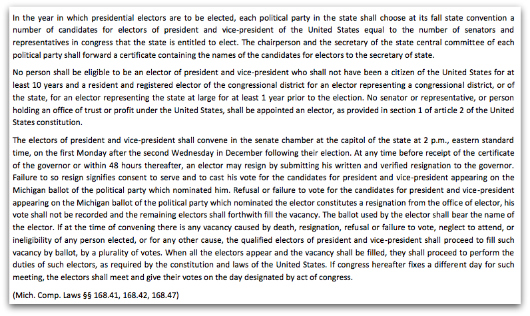
Here, in case you can’t read the print above, is the most pertinent part: “At any time before receipt of the certificate of the governor or within 48 hours thereafter, an elector may resign by submitting his written and verified resignation to the governor. Failure to so resign signifies consent to serve and to cast his vote for the candidates for president and vice-president appearing on the Michigan ballot of the political party which nominated him. Refusal or failure to vote for the candidates for president and vice-president appearing on the Michigan ballot of the political party which nominated the elector constitutes a resignation from the office of elector, his vote shall not be recorded and the remaining electors shall forthwith fill the vacancy. The ballot used by the elector shall bear the name of the elector. If at the time of convening there is any vacancy caused by death, resignation, refusal or failure to vote, neglect to attend, or ineligibility of any person elected, or for any other cause, the qualified electors of president and vice-president shall proceed to fill such vacancy by ballot, by a plurality of votes. When all the electors appear and the vacancy shall be filled, they shall proceed to perform the duties of such electors, as required by the constitution and laws of the United States.”
Oh, and it’s also worth noting that no Elector has ever been prosecuted for failing to vote as pledged.
Like I said at the outset of this post, I doubt it’ll be that close, but can you imagine a situation where it came down to the vote of a single Elector in a state like Michigan who decided to go rogue, was replaced, and then filed a case demanding that his/her vote be counted? And, can you further imagine that, in such an instance, the case would go to the Supreme Court, where, thanks to Republican obstruction, we currently have only 8 Justices? And could you imagine if they deadlocked along party lines? Where would we, as a nation, be then?
At any rate, if someone in Michigan wants to test the legality of our state electoral system this election cycle, it would be one of the following 16 people – our Michigan Electors – all of whom have pledged to vote for Donald Trump on December 19… As you’ll see, I’ve added a few add brief notes, but please feel free to leave a comment if you should have any other relevant information that you’d like to share… Oh, and unless otherwise noted, just assume they’re white men.
John Haggard: Told Buzzzfeed that he’s received 6,000 emails urging him not to, but that he plans on voting for Trump.
Jack Holmes: Retired Hope College Political Science professor who says, as Michigan is one of 29 states where Electors are “bound,” he has no choice but to vote for Trump. But that doesn’t mean that he doesn’t want to vote for Trump. In fact, he says he’s “enthusiastic” about voting for him.
Kelly Mitchell: African-American employee of the Michigan GOP, where she holds the position of Outreach Vice Chair. She also serves on the RNC Michigan Black Advisory Council.
Judy Rapanos: I’m sure she’s done things in her own right, but, from what I’m seeing, she’s most known for being the widow of Midland developer and entrepreneur John Rapanos.
Henry Hatter: Black Republican, and Clio Board of Education member.
Robert Weitt: From St. Joseph.
Wyckham Seelig: Judging from his Twitter feed Seelig doesn’t care much for either Obama or Clinton. The Ann Arbor man also told WZZM, the ABC TV affiliate in Grand Rapids, that he’d received over 13,000 emails asking him to be a “faithless” Elector, which he said he couldn’t do even if he wanted to. “In Michigan there is a law that says if an elector tries to vote for someone other than the candidate to whom he is pledged that Elector will immediately be replaced and someone who will vote the way the people voted will cast the ballot,” he said. He was elected by the Trump caucus in the 7th Congressional District.
Ross Ensign: A 73-year-old retiree in Northern Oakland County who spent 38 years working for KMART as store manager among other positions. “This is the pinnacle of what I will be able to do in politics,” Ensign told The Oakland Press. “This is much more exciting than I would have thought. It was something that I was not out seeking. I was being asked to do it but didn’t expect it to actually be voted into the position. I try to step up to the plate whenever asked and it’s new ground for me. I like learning new things and about how things operate.”
Michael Banerian: Current youth chairman of the Michigan Republican Party and 22-year-old college student at Oakland University, who would one day like to run for office. “This next generation,” he told the Oakland Press, “is not just casting a vote for Trump but showing they have faith in the system.”
Brian Fairbrother: Shelby Township Deputy Clerk, currently working on his Master of Science in Supply Chain Management at Michigan State University.
Ken Crider: Ran for Livonia City Council and State Rep.
Mary Vaughn: Secretary of the Taylor Republican Club.
Jim Rhoades: Motorcycle lobbyist who says he’s supporting Trump, in spite of the fact that he sometimes acts “like a 12 year old boy,” because he’s the kind of guy who “makes shit happen.”
William Rauwerdink: Served time in federal prison for conspiracy and false statements.
Hank Fuhs: Vietnam vet and Secretary of the Michigan Republican State Committee.
Joseph Guzman: Michigan State professor who serves on Trump’s National Hispanic Advisory Council
Will one of them attempt to cast a ballot for someone other than Trump? I suppose it’s possible, but, given their backgrounds, and the legal hurdles, I suspect it’s doubtful. But, looking over the list, I think it’s conceivable that a few may at least consider the possibility of pushing back. At any rate, I think it’s interesting to know who will be traveling to Lansing on December 19 to officially make Donald Trump our President. It’s these 16 people, all of whom, if they cast their ballots for Trump, will do so knowing full well the kind of man that he is, and the risk he poses to our nation. So, if you know any of them, be prepared to cross them off your Christmas card list this year. [And, yes, they’ll be going to Lansing to vote. Probably like many of you, I thought that the members of the Electoral College assembled in D.C. to vote. That’s not the case, though. Our Electors, by design, stay in their home states, as our founding fathers feared that, otherwise, they could hatch nefarious plans, or fall victim to the influence of others.]
So, where does all of this leave us? I’m not sure. Like I said, it’s doubtful that our Electors will swing things one way or the other this election cycle, unless something truly horrific were to happen between now and December 16. [Whoever has those hot mic tapes from the set of the Apprentice might want to release them now.] With that said, though, I’m glad that we’re having this conversation right now, and thinking about the future of our electoral system. Hopefully it yields something good in the future… like non-partisan redistricting, automatic recounts in tight races, increased access, and any number of other things that would improve participation and make our democracy stronger. As for the future of the Electoral College, I’m undecided. It doesn’t seem to make sense to continue the practice if it’s just a rubber stamp for the general election. At the same time, though, I’m not sure that I’m altogether comfortable with the idea that our President can be selected by 538 Electors, fully empowered to disregard the votes of those people whom they represent. And, for that matter, I’m also not sure that I like the idea of a simple “majority wins” elector system, like many on the left have been pushing for since this election. While it would give Democratic candidates an edge in national races, it just doesn’t strike me as fair, given how much smaller a voice less populated states would have under a “majority wins” system. At the same time, however, it also doesn’t strike me as fair that, as of right now, under our current system, the votes of people in those small states are worth on the order of three times more than our votes here in Michigan. Regardless of what happens on December 19, here’s hoping that all of these are conversations that continue. To be honest, though, I don’t see how we can move forward with the leaders we have now, who seem more motivated by self-interest and party politics than the overall health of the nation. Hopefully that changes, though. If not, I suspect we’ll be going back to the founding fathers more and more often, as their voices are really the only unbiased ones that we have to listen to.
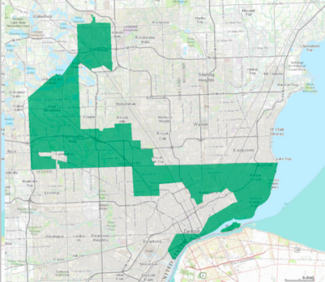 Speaking of the Michigan House and Senate being under Republican rule, it’s also interesting to note that this, in very large part, is due to gerrymandering, which, like voter suppression, is intended to give conservatives an electoral edge in spite of their dwindling support. For instance, more Michiganders voted for Democrats in House races during the last election, but more Republicans won. That’s because Republicans have redrawn the boundaries in order to lump Democrats together into single districts, allowing Republicans to keep majorities in the surrounding areas. Here, to the right, to give you a sense of what we’re up against us, is a map of Michigan’s 14th district, which stretches from eastern Detroit west to Farmington Hills and north to the suburbs of Auburn Hills. [Look for more on gerrymandering, and what we can do to fight it, in an upcoming post.]
Speaking of the Michigan House and Senate being under Republican rule, it’s also interesting to note that this, in very large part, is due to gerrymandering, which, like voter suppression, is intended to give conservatives an electoral edge in spite of their dwindling support. For instance, more Michiganders voted for Democrats in House races during the last election, but more Republicans won. That’s because Republicans have redrawn the boundaries in order to lump Democrats together into single districts, allowing Republicans to keep majorities in the surrounding areas. Here, to the right, to give you a sense of what we’re up against us, is a map of Michigan’s 14th district, which stretches from eastern Detroit west to Farmington Hills and north to the suburbs of Auburn Hills. [Look for more on gerrymandering, and what we can do to fight it, in an upcoming post.]
